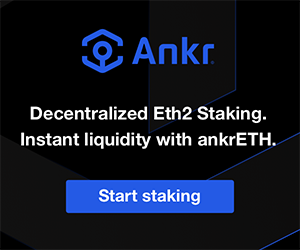Key Takeaways
- A pending crypto infrastructure bill in the United States could impact DeFi services, according to a law expert.
- The bill, passed by Senate in August, initially raised concerns for centralized crypto exchanges and brokerages.
- It remains to be seen how heavily the bill will be enforced if it passes through the next stage of approval.
Share this article
One of two pending infrastructure bills in the U.S. could have implications for DeFi exchanges and other services, according to a warning from University of Virginia law lecturer Abraham Sutherland.
Infrastructure Bill Could Impact DeFi
In August, the U.S. Senate voted to pass an infrastructure bill that included provisions to increase transaction reporting requirements for crypto brokerages. While most of the discussion at that time focused on implications for centralized crypto exchanges such as Coinbase and Binance, the bill may have implications for DeFi services that were overlooked.
Sutherland drew attention to an amendment to tax code section 6050I, which he noted is different from the “so-called ‘broker’ provision that attracted public opposition.” Rather, Sutherland says that this amendment to the tax code would require recipients of “digital assets” in value amounts greater than $10,000 to report sender names, addresses, and SSNs to the government upon receiving the funds.
He explained that this provision requires recipients to collect information about senders—not information about recipients, as was previously the concern. Furthermore, this applies to all businesses, as only banks and financial institutions are exempt.
Sutherland believes that this rule could be especially challenging to DeFi platforms and services. Not only are DeFi platforms anonymous, DeFi users often receive funds from a liquidity pool or smart contract, meaning there is no single sender to identify.
“The statute would not ban DeFi outright [but] given the way DeFi works [this] would make it impossible to comply,” Sutherland argued.
Coinbase CEO Comments on the Matter
Coinbase CEO Brian Armstrong has drawn attention to the rule as well, noting that the statute “seems like a disaster” and that it “could freeze a lot of healthy crypto behavior like DeFi.” He added that Coinbase’s legal team is “looking into this further to try and figure out what exactly the implications are.”
Coinbase itself is a centralized exchange, and it is more likely that it will be impacted by the brokerage rules that Armstrong and others initially expressed concerns about in August. Coinbase does not operate or own any DeFi services itself.
However, Coinbase does integrate DeFi services in its Wallet and features DeFi heavily in its Earn program. The company could conceivably distance itself from DeFi if the association is seen as a risk, though Armstrong has not explicitly suggested that yet.
In an unexpected turn of events, the U.S. House of Representatives is now expected to vote on the infrastructure bill that had previously passed the Senate tonight.
Disclaimer: At the time of writing this author held less than $100 of Bitcoin, Ethereum, and altcoins.
Share this article
Senate Passes Vote on Anti-Crypto Infrastructure Bill
After much discussion, the $1.2 trillion infrastructure bill was approved by the Senate with a 69-30 majority. The bill contains a problematic provision concerning the crypto industry as any crypto…
Coinbase CEO Armstrong Decries Infrastructure Bill Draft
Coinbase CEO Brian Armstrong has taken to Twitter, voicing his opposition to the bipartisan infrastructure bill’s “hastily conceived provision” on crypto assets. Coinbase CEO Opposes Bill Draft Brian Armstrong is…
Coinbase Has Stockpiled $4 Billion for a “Crypto Winter”
Coinbase has accumulated $4 billion in cash in order to handle regulatory compliance costs and potential trading fluctuations, according to a report from the Wall Street Journal. Funds Will Pay…
How Bumper’s Price Protection Helps DeFi Users Earn Yield on Their A…
Is it possible to build a DeFi protocol that counters crypto’s inherent volatility while also letting holders enjoy the upshot of their assets? Bumper Finance is a DeFi price-protection protocol that aims…


